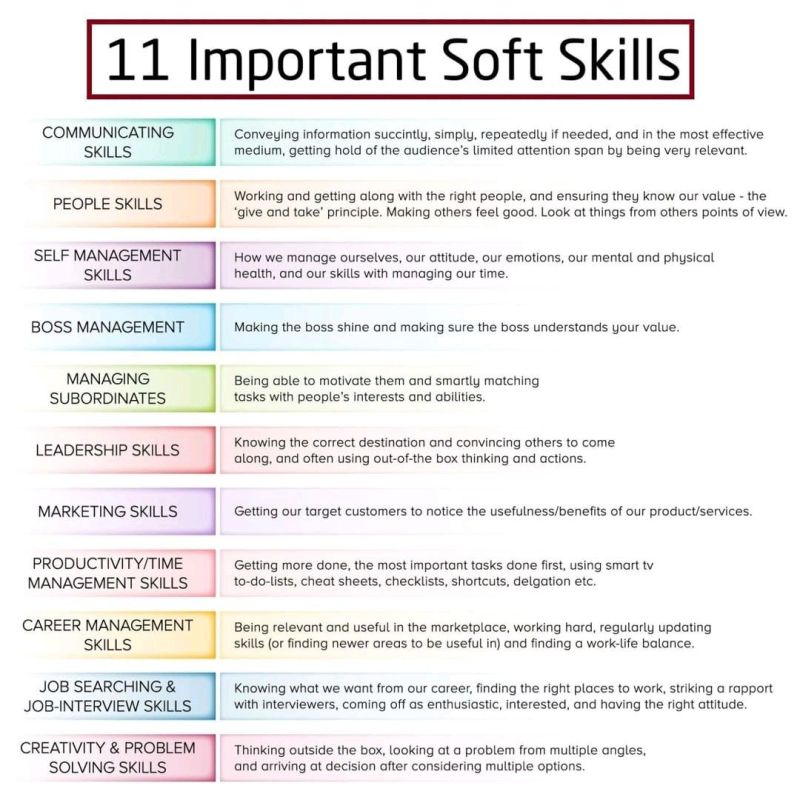Soft skills such as collaboration are the go-to skill set of the future as the knowledge economy increases in importance. In the age of automation and AI, the skills required to succeed clearly are shifting from hard skills to soft skills. The future worker’s transformation will accelerate as physical and basic cognitive skills give way to technological, social, and emotional skills. In a recent study by global consulting firm McKinsey, researchers forecast that between 2016 and 2030, the number of hours worked using social and emotional skills will increase by 24% in Europe and America. The requirements for more workplace collaboration will test the abilities of the new workers to survive and thrive in the future workplace. This article discusses ideas to achieve better workplace collaboration, its benefits, and some of its risks. We offer ideas and strategies to strengthen and promote workplace collaboration.
What is workplace collaboration?
Workplace collaboration refers to the cooperation and coordination of employees within a company to achieve common goals and objectives. More broadly, collaboration is one of the 4C skills (creativity, critical thinking, and communication) necessary to compete in the future workplace. Collaboration is the practice of individuals coming together to exchange ideas, information, and skills and to work together to find creative and innovative solutions to problems. The benefits of a collaborative workplace are many and can contribute to a company’s success.

Collaborating in the Workplace
Below are the top benefits that accrue from workplace collaboration.
- Increased Productivity: One of the critical benefits of workplace collaboration is increased productivity. When employees collaborate, they can share their knowledge, skills, and experiences, leading to more efficient and effective work processes. They can also identify areas for improvement and work together to find solutions to challenges. Additionally, collaboration can help create a more positive work environment, leading to increased employee motivation and engagement.
- Enhanced Creativity and Innovation: Another benefit of workplace collaboration is enhanced creativity and innovation. When employees come together to brainstorm and exchange ideas, they can generate new and unique concepts they may not have thought of on their own. This increased diversity of thought can lead to more innovative and creative solutions to problems and help drive a company’s growth and success.
- Increased Job Satisfaction: Workplace collaboration can also improve employee morale and satisfaction. When employees collaborate and work together, they feel valued and appreciated, which can lead to increased job satisfaction and a more positive work environment. Additionally, collaboration can help build stronger relationships among employees, leading to increased trust and better communication.
- Improving problem-solving skills: Problem-solving skills among employees can improve through workplace collaboration. When employees work together, they can leverage their different perspectives and expertise to find solutions to complex problems. This can help develop problem-solving skills, which can be beneficial in the workplace and other areas of life.

What does the research show?
Has workplace collaboration been good for organizations? Numerous studies have examined the benefits of workplace collaboration and its impact on a company’s performance. The research seems to confirm the benefit of workplace collaboration, and the evidence is clear.
- A study by the University of Warwick found that employees who work in a collaborative environment are more productive, with a 12% increase in productivity compared to those who work alone.
- A study by Deloitte Australia found that when employees collaborate, they work 15% faster, with companies twice as likely to outgrow their competitors.
- A study by McKinsey Global Institute found that the development of a 60-person internal network at a leading petrochemical company, which sped up problem-solving processes, resulted in more than $5 million in savings.
Challenges in workplace collaboration
The benefits of workplace collaboration may seem obvious and a practice that everyone should subscribe to. However, while many benefits exist from workplace collaboration, potential challenges also arise. Some of the major challenges include
- Communication Barriers: Communication barriers such as language or cultural differences. This can be challenging for a multicultural organization or those engaged in cross-border activities. Fostering an open and inclusive workplace culture that encourages employees to share their thoughts and ideas. Additionally, companies can provide training and support to help employees develop their communication skills.
- Resistance to Change: Some employees may resist collaboration, especially if they are comfortable working independently. To overcome this challenge, it is essential to educate employees on the benefits of collaboration and to provide them with the tools and resources they need to be successful. Additionally, companies can provide opportunities for employees to work together in a supportive and positive environment.
- Collaboration Overload: According to a recent study in Harvard Business Review, collaboration utilizing technology tools has risen over 50% in the past decade to consume 85% of workers’ time. The proliferation of workplace technologies to drive collaboration has led to the “Always Switched On” employee. Recently, Shopify, a leading e-commerce company, canceled its Slack platform and restricted company meetings. Its new meeting policy will remove over 10,000 events from employees’ calendars.
Overcoming workplace collaboration challenges
Building an environment for better workplace collaboration requires effort and attention to some key issues. Here are some strategies for overcoming the challenges of collaboration:
- Communicate Clearly: Ensure clear and open communication among team members, and encourage regular feedback and open discussions. This can help prevent misunderstandings and ensure everyone is working towards the same goals.
- Encourage Diversity: Foster a diverse and inclusive workplace that values different perspectives and encourages sharing ideas. This can help to prevent groupthink and promote innovation.
- Use Technology Strategically: Let’s be clear, technologies are essential for collaboration to succeed. However, technology use must be moderate and in conjunction with face-to-face engagements. For collaborative work, companies such as EdrawMind offer various visual collaboration tools to drive efficiency and productivity in the workplace. Others, such as Canva, are beginning to integrate more collaborative tools in the suite of products, moving beyond creatives to appeal to a broader set of knowledge workers.
- Celebrate Success: Celebrate successes and recognize the contributions of each team member. This can help to foster a positive and supportive work environment and promote collaboration. Success recognition can occur in many forms, e.g. monetary, publicity, senior management, etc.

Finally, overcoming the challenges of building a collaborative workplace requires effective communication, trust-building, conflict management, and a focus on teamwork and collaboration. Soft skills, including collaboration, will be the skill set for the future of work. Organizations can achieve better workplace collaboration by fostering a supportive and inclusive work environment.
Disclosure: At ClearSky 2100 Ventures, our portfolio partly consists of affiliate partnerships, and we may earn a small commission from buying links on our site at no cost to you.





